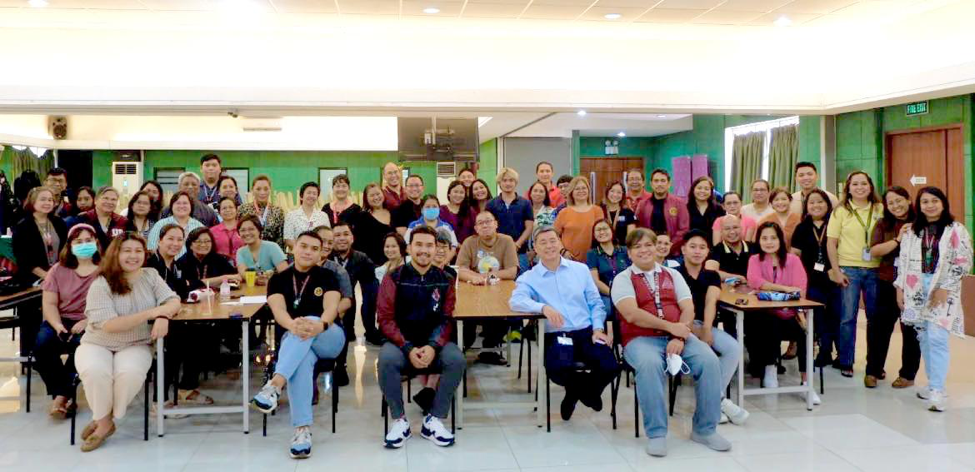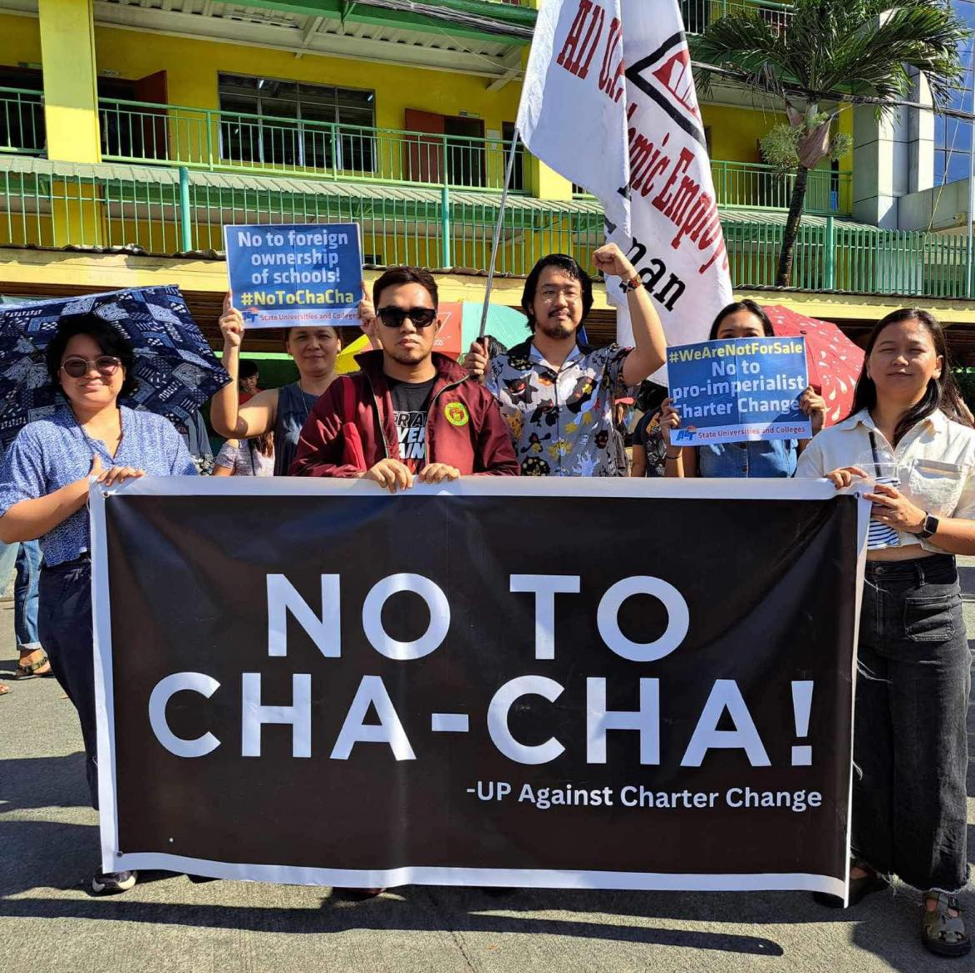𝗘𝘅𝗽𝗮𝗻𝗱𝗶𝗻𝗴 𝗲𝗛𝗢𝗣𝗘: 𝗧𝗵𝗲 𝗙𝗶𝗴𝗵𝘁 𝗖𝗼𝗻𝘁𝗶𝗻𝘂𝗲𝘀

𝘉𝘺 𝘋𝘳. 𝘎𝘦𝘯𝘦 𝘈. 𝘕𝘪𝘴𝘱𝘦𝘳𝘰𝘴 The Enhanced Hospitalization Program, more commonly known as eHOPE, is a program meant to help UP employees with their hospitalization expenses. Unlike the Financial Assistance Program for Hospitalization Expenses (FAPHE), which was a one-time grant, eHOPE provides a fixed amount for hospitalization and post-hospitalization medication that is renewed annually. The program began in UP Manila and the Philippine General Hospital and even though it was eventually implemented in the entire UP system, there were still gaps in implementation and utilization across constituent units (CUs). In 2019, the Technical Working Group composed of representatives from the All UP Academic Employees Union (AUPAEU) and the UP System Administration came up with recommendations to further expand the implementation of eHOPE and provide better benefits for employees. Again in 2022, the Ad Hoc Committee on eHOPE Implementation created by the Office of the UP President and which included an AUPAEU representative, forwarded to the UP President similar recommendations previously made by the TWG. The recommendations included: • Increase in financial coverage to Php 100,000 (from Php 80,000) plus Php 10,000 for post-hospitalization meds for all CUs • Inclusion of out-patient services (e.g., chemotherapy, cataract surgery, rehabilitation treatment, and hemodialysis) in eHOPE coverage Eligibility of all UP personnel with employer-employee relationship (including those covered under the Revolving Fund/Trust Fund) regardless of length of service• “No cash out” provision in the memorandum of agreement between CUs and referral hospitals to avoid out-of-pocket expenses• Increase in eHOPE allocation for professional fee payment to twice that of the PhilHealth reimbursement in its case rate package• An amount of Php 10,000 from eHOPE to be used for out-patient diagnostic tests and imaging • An amount of Php 10,000 from eHOPE to be used maintenance medication Finally, in April 2023, through the consistent intercession of the sectoral regents, the UP Board of Regents approved three of the recommendations: increase in financial coverage of eHOPE to Php 100,000 across all CUs, expansion of eligibility to avail of eHOPE, and increase in payment for professional fees. But other urgent amendments, like the inclusion of out-patient services and lab exams and the maintenance medication in eHOPE coverage, were left out. Much still needs to be done to make eHOPE more relevant for UP employees. Data shows that from 2017 to 2021, three CUs comprised 80% of the beneficiaries: UP Manila/PGH 41%; UP Diliman 22%, and UP Los Baños 17%. Utilization year on year hovered from PhP 18 to 22 million (assuming 2021 to be an outlier due to the pandemic). Thus, despite UP’s allocation for eHOPE, there was significant underutilization due to the programs’ provisions. The Office of the Faculty Regent, together with the faculty and REPS throughout the university through the AUPAEU, continues to push for not just the approval of the remaining recommendations to expand the eHOPE but also for reforms that will ensure the health and wellness of everyone within the UP community. Challenges remain but the struggle continues and the fight marches ever forward. 𝘋𝘳. 𝘎𝘦𝘯𝘦 𝘈. 𝘕𝘪𝘴𝘱𝘦𝘳𝘰𝘴 𝘪𝘴 𝘢 𝘧𝘢𝘤𝘶𝘭𝘵𝘺 𝘰𝘧 𝘵𝘩𝘦 𝘋𝘦𝘱𝘢𝘳𝘵𝘮𝘦𝘯𝘵 𝘰𝘧 𝘍𝘢𝘮𝘪𝘭𝘺 𝘢𝘯𝘥 𝘊𝘰𝘮𝘮𝘶𝘯𝘪𝘵𝘺 𝘔𝘦𝘥𝘪𝘤𝘪𝘯𝘦 𝘪𝘯 𝘜𝘗 𝘔𝘢𝘯𝘪𝘭𝘢, 𝘢𝘯𝘥 𝘧𝘰𝘳𝘮𝘦𝘳 𝘗𝘳𝘦𝘴𝘪𝘥𝘦𝘯𝘵 𝘰𝘧 𝘵𝘩𝘦 𝘈𝘭𝘭 𝘜.𝘗. 𝘈𝘤𝘢𝘥𝘦𝘮𝘪𝘤 𝘌𝘮𝘱𝘭𝘰𝘺𝘦𝘦𝘴 𝘜𝘯𝘪𝘰𝘯 – 𝘔𝘢𝘯𝘪𝘭𝘢 𝘊𝘩𝘢𝘱𝘵𝘦𝘳 PHOTO: Faculty Regent Carl Marc Ramota and UP Manila Chancellor Michael Tee in a gathering of faculty and REPS of UP Manila organized by All UP Academic Employees Union-Manila Chapter on December 7, 2023. ____________________________________ View the PDF file our first issue of UP KALIPUNAN, the official publication of the Office of Faculty Regent of the University of the Philippines. Click on the following link: https://issuu.com/osrup/docs/up_kalipunan_01-01-final_8f8b9c864f892e Download the PDF file here: https://drive.google.com/file/d/1LAcnnEgaWHMufyJ_QHzYj0ZWQJjLA7o-/view?usp=sharing
𝗖𝗵𝗮-𝗖𝗵𝗮, 𝗳𝗼𝗿𝗲𝗶𝗴𝗻 𝗼𝘄𝗻𝗲𝗿𝘀𝗵𝗶𝗽 𝘄𝗼𝗻’𝘁 𝘀𝗼𝗹𝘃𝗲 𝗲𝗱𝘂𝗰𝗮𝘁𝗶𝗼𝗻 𝘄𝗼𝗲𝘀

Faculty members of the University of the Philippines (UP) continue to voice out opposition to Charter Change (Cha-Cha), particularly the proposed 100 percent foreign ownership in education. In his message during the Cha-Cha forum on March 18 organized by the UP Diliman University Council, Faculty Regent Carl Marc Ramota questioned the need to amend the Constitution to push for internationalization and the entry of Ivy League schools in the country. “Philippine universities have long engaged in international linkages with higher education institutions even without Cha-Cha and foreign ownership,” Faculty Regent Ramota pointed out. “Are these the kind of reforms that the education sector needs at the moment? Do we really need to change the constitution and allow foreign ownership to improve the quality of education?” he asked. Regent Ramota urged lawmakers and the Marcos Jr. administration to check its priorities, and revisit the first year report of the Education Commission 2 (EdCom 2) which highlights the nutrition and stunting, the ancillary tasks of teachers due to lack of administrative and academic support personnel, and failures of past education reforms, among others. Faculty Regent Ramota added that the EdCom 2’s findings in basic education are also true in UP and other higher education institutions. “Faculty and staff are overloaded with academic and adminsitrative work, with job order and contract of service personnel even outnumbering regular employees in a number of UP campuses and units. These are some of the main issues that our lawmakers and university administrators must address, and Charter Change definitely is not the solution to these woes,” Regent Ramota said. “Instead of pushing for foreign ownership in higher education, our lawmarkers should give more support to our state universities and colleges,” he added. In February, Faculty Regent Ramota together with the UP Staff and Student Regents released a joint statement opposing Cha-Cha. This was followed by the relaunch of the multisectoral, systemwide coalition, UP Against Charter Change. Various UP academic units and organizations have also released statements against Cha-Cha since 2023. #NoToChaCha No to Cha-cha Network
